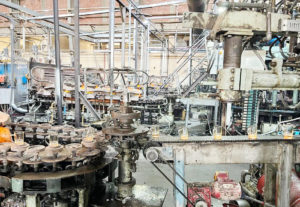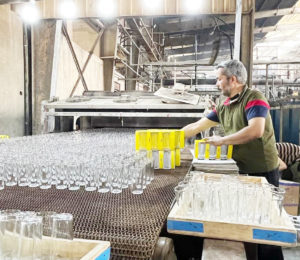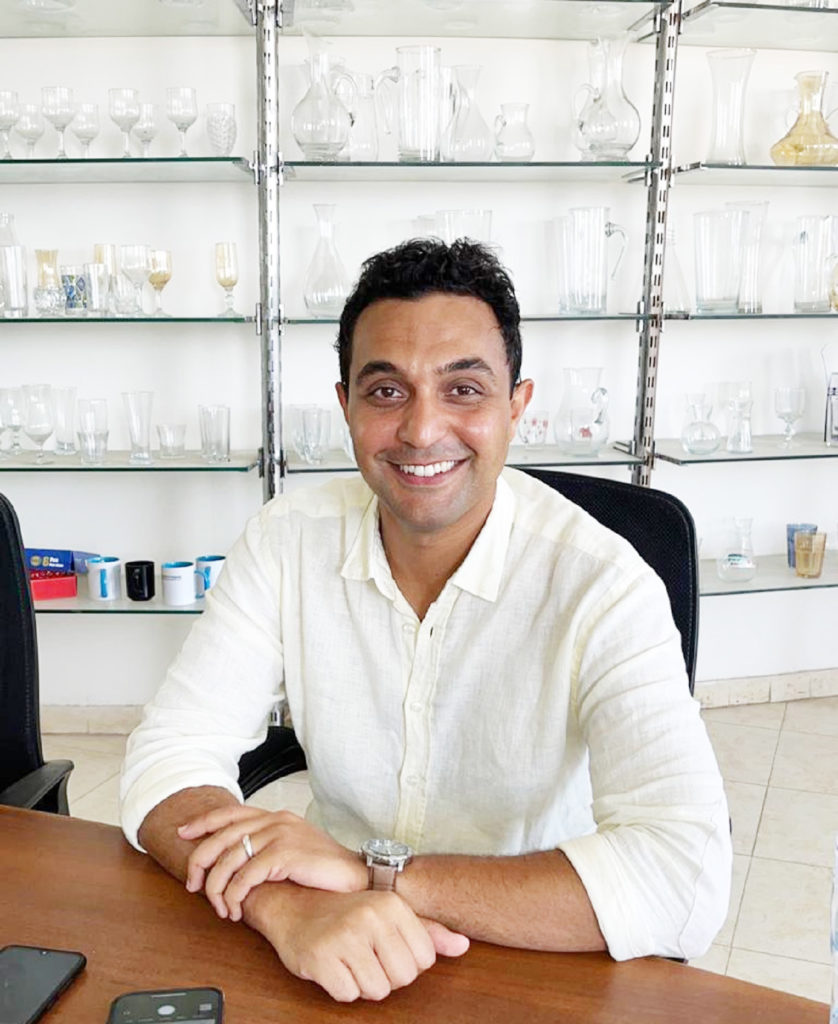Cairo – Egypt-based company Mansoura Glass Co. plans on boosting its capacity to a daily throughput of 200 tonnes within five years. The glassware manufacturer currently produces 50 tonnes a day. According to Mansoura Glass Co. Marketing director Mohamed Hamed (pictured above), the company acquired a new property to build several furnaces on and fulfill the plan.
According to the executive, especially from last year to the first quarter this year, before the Russian-Ukrainian war, the Egyptian company managed to break into new markets and increase exports. Mansoura Glass Co expanded into markets in the Middle East, North, East and South Africa, and it has recently break into the West Africa. It has also established a strong foothold in the Western, Southern and Eastern Europe.

“A new market that has drawn the attention of the company for its high growth rates is Brazil and Latin America,” Hamed said. According to him, the company begun operations in the region in 2018, and interest increased due to the high demand seen in 2020. In Latin America, the company has seen a good demand in Venezuela and Chile, unlike Argentina.
According to the executive, the demand seen from the Brazilian market in 2021 was higher than the company’s production capacity. Mansoura Glass Co. tried to find a balance to meet this and other demands. Last year Brazil accounted for 50% of the Egyptian company’ exports. This year, however, global – and Brazilian – demand has been affected by the crisis that has hit most countries.
The company
Mansoura Glass Co. was founded in early 1985 by Hajj Abdullah al-Sharei, who started manufacturing glass by hand in the city of El Mansoura, located some 120 kilometers from Cairo. The company has expanded with properties in the city of 10th of Ramadan aimed at establishing a larger factory to meet the increasing demand for its products inside and outside Egypt.
The new facilities also aim at manufacturing in line with the most recent international glassware production systems, managing to offer a wider range of modern handmade products.
The company’s new plant in the city of 10th of Ramadan started operating in 2009, and over the years its production capacity went from 15 tonnes to 45 tonnes a day. Hamed estimates that the production capacity of the two plants of the company in El Mansoura and 10th of Ramadan is currently 50 tonnes a day each.
Future

Hamed said that global natural gas prices have risen, which has affected the prices of raw materials used in the glass industry. According to the executive, this has caused a sharp increase in production costs, especially since Egypt depends on imports of most chemical products needed for the industry, such as sodium carbonate.
The Marketing director said, however, that despite the increases, the glass industry in Egypt remains stable due to the gas prices in Egypt, which are still competitive compared to the European Union’s. According to Hamed, this gives the Egyptian product an opportunity for further expanding into the glass market. According to him, this industry depends on owning expensive machinery that produce high-quality products for high prices.
Investors
Hamed said that the glass industry in Egypt attractive for both local and foreign investors. According to him, one reason is that the country has the most important element of the industry, namely sand, which is exported to several countries around the world. Furthermore, Egypt has the best types of limestone in the world, favorable natural gas and prices and labor costs compared to many neighboring countries.
Glass and glassware exports from Egypt climbed 32% year to date through May to USD 226 million from USD 171 million in the same period last year, according to a report by the Export Council for Building Materials, Refractory, and Metallurgy Industries.
Translated by Guilherme Miranda




